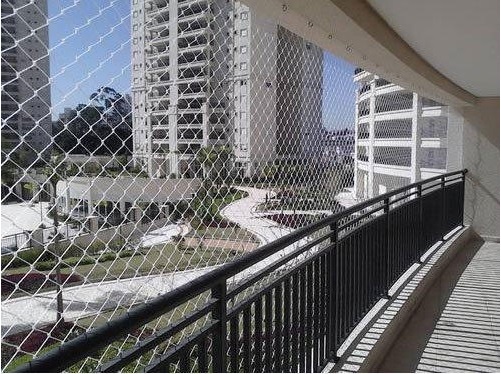Introduction
Virginia boasts incredible history and breathtaking landscapes from the Blue Ridge Mountains to the Atlantic beaches. For homebuyers seeking property in the Commonwealth, a professional home inspection along with radon testing provides critical information to make a sound investment.
Understanding what qualified inspectors look for and the radon risks prevalent in parts of Virginia will lead to smarter home buying decisions.
Overview of Professional Home Inspection
In Virginia, home inspectors must follow the standards published by the American Society of Home Inspectors (ASHI) or the International Association of Certified Home Inspectors (InterNACHI) for conducting thorough property examinations.
A home inspection includes assessment of:
- Roof condition, age, drainage, flashings, skylights, and chimneys
- Attic insulation, ventilation, framing, and signs of moisture issues
- Exterior siding, trim, paint, decks, patios, eaves, and all exterior structures
- Interior ceilings, walls, floors, windows, doors, railings, steps, and cabinets
- Plumbing system including all supply lines, drains, water heaters, fixtures, and venting
- Electrical system such as the service, wiring, panel, outlets, and fixtures
- HVAC components including heat pumps, central air, furnaces, ducts, and distribution
- Foundation, framing, ventilation, and structural integrity
- Garage doors, openers, safety sensors, and fire separation from the home
- Entire property including drainage, grading, vegetation, fences, and walkways
Inspectors use specialized tools like moisture meters, outlet testers, and thermal imaging to check for defects. Any issues discovered are detailed in the inspection report along with repair recommendations.
Radon Testing in Virginia Homes
In addition to a professional home inspection, radon testing is strongly advised for homes in parts of Virginia due to elevated radon rates in the Commonwealth.
Radon is an invisible, radioactive gas emitted from the natural decay of uranium in the soil and bedrock beneath homes. It seeps into dwellings through small cracks and openings. Long-term radon exposure is the second leading cause of lung cancer in the U.S. after smoking.
The EPA has identified most of Virginia as having potentially high indoor radon levels, with concentration zones in the southwest region, Piedmont, and along the Appalachian mountain range. The only areas with low predicted radon are parts of coastal Tidewater.
Due to the lung cancer risks, Virginia home buyers are advised to perform radon testing. A certified professional can install radon test kits throughout the home which get analyzed by a lab after a set duration.
If radon is found above the EPA action level of 4 pCi/L, a radon mitigation system can be installed to safely vent gas from beneath the home before it enters living spaces.
Why Use Qualified Home Inspectors
In a hot real estate market like Virginia, some buyers are tempted to waive inspections to make their offer more attractive to sellers. This represents an enormous risk. Professional home inspections serve several invaluable purposes:
Unbiased Assessment – Inspectors work for the buyer, not the real estate agents or seller. Their job is providing an impartial evaluation of the home’s condition.
Identify Hidden Defects – Inspectors find issues undetectable to untrained eyes like early-stage mold, insufficient insulation, electrical hazards, failing HVAC systems, compromised foundations, and more.
Evaluate Safety – They determine whether the home has smoke alarms, GFCI outlets, proper wiring, radon, lead pipes, asbestos, and other safety concerns.
Determine Remaining Life – Home buyers need to know the useful remaining life of the roof, water heater, HVAC, appliances, and other components.
Guide Repairs & Negotiations – Documented issues in the inspection report allow buyers to negotiate credits or require sellers to address defects before closing.
Offer Peace of Mind – Perhaps most importantly, a home inspection brings peace of mind, allowing buyers to make one of life’s biggest purchases with greater confidence.
While tempting to save the $500 cost of an inspection, doing so forfeits the huge value professional home evaluation brings.
Questions to Ask Your Home Inspector
To ensure you select a qualified home inspector, ask these key questions:
- Are you licensed and insured in Virginia? Ask for their license number.
- How many years have you been inspecting homes in this area? Look for 5+ years of experience.
- Which inspection standards do you follow – ASHI, InterNACHI, or other? Confirm they adhere to recognized standards.
- What equipment do you use during inspections? Look for moisture meters, gas leak detectors, infrared cameras, etc.
- May I see a sample inspection report? The report should be comprehensive yet understandable.
- How long will the inspection take? 2-3 hours or more is expected for a thorough inspection.
- Do you recommend specialists for any issues discovered? Some defects require further evaluation.
For radon testing, inquire about their certifications, testing protocols, and mitigation recommendations if high radon is found.
Following up with inspectors’ past clients helps determine experience levels and if major issues have been missed on previous inspections. Checking credentials and online reviews assists in picking the best professionals.
Warning Signs of a Poor Inspector
Watch for these red flags when evaluating home inspectors:
- No proof of license and insurance coverage
- Vague about what’s included in the inspection
- Rushed inspection under 2 hours
- Unable to provide sample reports
- Lack proper testing tools and equipment
- Poor online reviews mentioning missed problems
- Very low cost compared to other inspectors
The largest purchase most people make deserves competent, ethical professionals conducting testing and assessments. Doing due diligence pays off.
In a state with elevated radon levels like Virginia, a standard Home Inspection Fredericksburg VA paired with thorough radon testing is a smart combination for home buyers. Investing in these professional services provides safety assurances and peace of mind. While it may seem tempting to save money by skipping professional inspections in today’s competitive housing market, the financial risks are massive compared to the relatively small upfront costs. One missed structural defect or dangerous radon level can cost tens of thousands down the road. Securing a home loan on a property with undisclosed issues can also prove difficult. For home buyers in Virginia, a detailed inspection along with radon testing is extremely wise. Work with reputable local professionals to uncover any problems early. The insights and peace of mind will be invaluable.
Conclusion
Purchasing a home, especially in a hot real estate market, can feel like a pressure cooker scenario for buyers with so much competition. The urge to waive inspections is understandable. However, this leaves dangerous liabilities unseen. Patience and due diligence pays off. Partnering with qualified local inspectors to thoroughly evaluate properties before purchase can prevent massive headaches later on. For homebuyers in Virginia, performing radon testing along with a comprehensive home inspection performed by trusted professionals you’ve vetted is absolutely worth the time and investment. Your safety and peace of mind hang in the balance.



